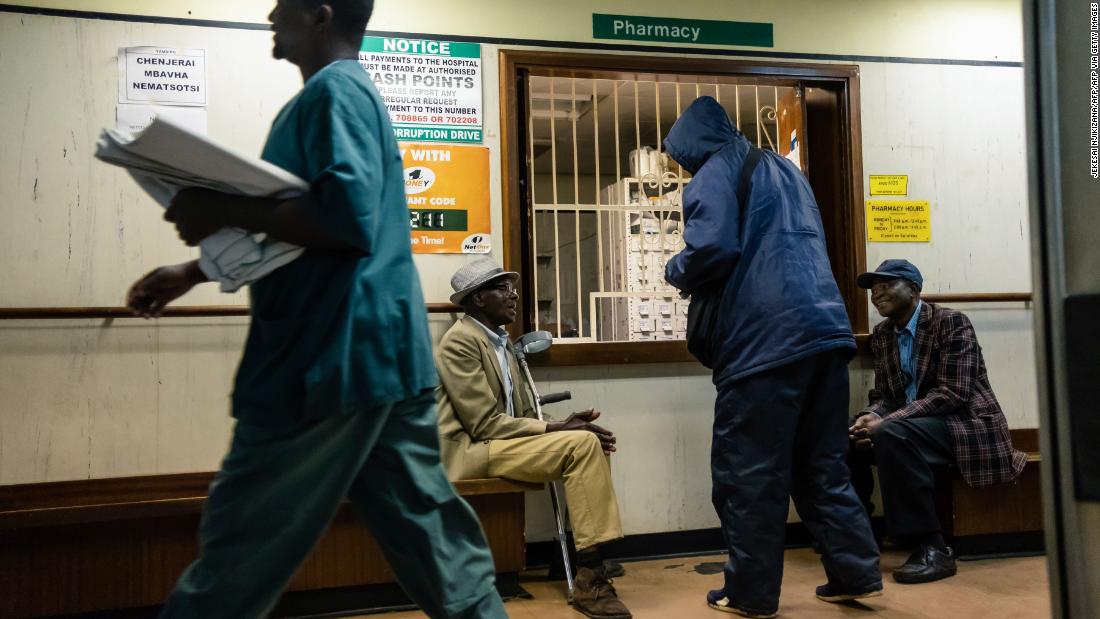After the Christmas holidays, Zimbabwe registered an increase in infections and deaths from Covid-19, increasing fears about an already fragile health system.
The government urged citizens to adhere to the blockade, which includes movement restrictions for all but the most essential services.
The reopening of schools has been postponed indefinitely, following an outbreak of Covid-19 in schools last semester, while stores will only be open until 3 pm daily.
A curfew from dusk to dawn is also in place to avoid meetings and evening events.
The hosts of a New Year’s Eve dance concert that breached an earlier ban on meetings of more than 100 people were arrested by the Zimbabwean court on Monday for six months.
The Zimbabwe Doctors for Human Rights Association (ZADHR) says the country’s hospitals are unable to cope with the increased demand for hospitalizations in a new report released on Wednesday.
“ZADHR notes with concern the limited capacity of local health facilities to accommodate cases in need of treatment. The continued rise in new infections has caused hospitals to become overloaded and not meet the increasing number of hospitalizations related to COVID-19 , “the body said.
The organization is also concerned about the rise in infections among frontline employees. Nearly 1,000 frontline workers were infected with Covid-19 in Zimbabwe due to a lack of personal protective equipment (PPE), doctors say.
“Our conservative estimates point to more than 1000 health professionals infected with COVID-19.
Medical associations continued to highlight the worrying trends of healthcare professionals working without adequate PPE, “said ZADHR.
Doctors also cautioned about the limited ability to deal with critically ill patients in need of intensive care, while admission beds remain low.
“ZADHR condemns in the strongest possible terms the sad situation of the continuous limited capacity of the ICU almost ten months after the detection of the first COVID-19 case,” said the doctors.
However, Zimbabwe’s Information Secretary, Nick Mangwana, told CNN that the government is “in control of the situation”.
“At the moment, our capacity is not stretched. However, we are dealing with a fluid situation in which if a front-line employee is positive, it affects capacity.”
“The reason I said this could invade us is because people were not following the blocking rules, so we saw the storm approaching,” said Mangwana.
Last year, doctors in Zimbabwe took the government to court for not providing PPE and other safety equipment.
Zimbabwe’s health system has faced headwinds due to a lack of funding, with health professionals at odds with the government because of poor and often unpaid wages.
Last year’s billionaire, Strive Masiyiwa intervened to get doctors back to work after months of negotiations with the authorities.
